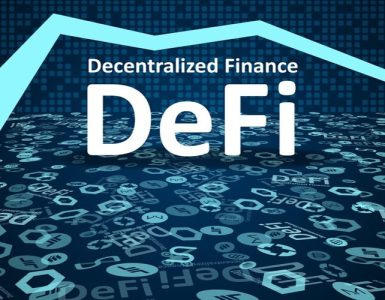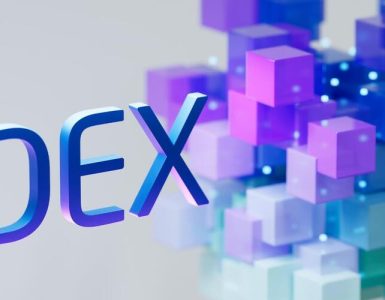Decentralized finance (DeFi) offers exciting opportunities for investors, but it’s essential to assess the project teams behind these ventures. Trustworthy developers play a crucial role in the success and security of DeFi projects. By evaluating project teams, investors can make informed decisions and minimize the risk of scams. This article provides guidance on how to spot trustworthy developers in the realm of DeFi.
The Significance of Project Teams in DeFi
In the decentralized finance space, project teams are the driving force behind the development and success of initiatives. Trustworthy developers possess the skills and expertise necessary to navigate the complexities of DeFi and ensure the security of the platform. By evaluating project teams, investors gain insights into the team’s ability to deliver on promises, withstand challenges, and prioritize the interests of the community.
Evaluating Team Experience and Expertise
A team’s experience and expertise are crucial indicators of their ability to execute a DeFi project successfully. Assessing the backgrounds of team members, including their qualifications and relevant industry experience, provides valuable insights into their capabilities. Look for teams with members who have a deep understanding of blockchain technology, smart contracts, and the specific niche the project operates in.
Assessing Previous Contributions and Track Record
A track record of previous contributions and successful projects enhances a team’s credibility. Research the team members’ involvement in past initiatives and their contributions to the blockchain community. Consider the impact they have made and whether their previous projects have gained recognition or achieved notable milestones. A strong track record indicates a team’s commitment, competence, and ability to deliver results.
Transparency and Communication
Transparent and open communication is a vital aspect of trustworthy developers. Evaluate how transparent the team is in sharing project updates, development progress, and addressing community concerns. Transparent teams provide regular and timely information, fostering trust and demonstrating their commitment to keeping the community informed about project developments.
Community Interaction and Engagement
Trustworthy developers actively engage with the community. Look for teams that interact with community members, address questions and concerns, and seek feedback. Regular engagement through community forums, social media, and AMA (Ask Me Anything) sessions indicates a team’s willingness to involve the community in decision-making and build a supportive ecosystem.
Collaborations and Partnerships
Partnerships and collaborations with reputable entities can enhance a team’s credibility. Investigate whether the project has established collaborations with other well-known projects, blockchain industry leaders, or respected organizations. Strong partnerships demonstrate the team’s ability to attract support and validate their project’s potential.
Reputation in the Blockchain Community
A team’s reputation in the broader blockchain community is a valuable indicator of their trustworthiness. Research how the team is perceived by other experts, developers, and community members. Positive feedback, endorsements, and recognition from reputable sources increase confidence in the team’s abilities and reliability.
Security Measures and Audits
A commitment to security is paramount in DeFi projects. Trustworthy developers prioritize security measures and engage professional auditing firms to conduct code audits and security assessments. Review the project’s security practices, their collaboration with reputable auditors, and the availability of audit reports. A strong emphasis on security demonstrates the team’s dedication to protecting investors’ funds and preventing vulnerabilities.
Continuous Development and Updates
Lastly, evaluate how actively the team pursues continuous development and provides updates. Projects that regularly release updates, improvements, and new features indicate an ongoing commitment to project advancement. Look for teams that embrace community feedback and actively incorporate it into their development roadmap.
Reputation in the Blockchain Community

A team’s reputation within the blockchain community can provide valuable insights into their trustworthiness. Reputation is built through consistent contributions, active participation, and positive interactions with other experts, developers, and community members. Here are some key aspects to consider when assessing a team’s reputation:
- Contributions and Impact: Evaluate the team’s contributions to the blockchain community. Have they made notable contributions, such as code improvements, research papers, or open-source projects? Assessing the impact of their work can indicate their level of expertise and dedication to the industry.
- Recognition and Awards: Look for any recognition or awards the team has received. This can include industry accolades, speaking engagements at conferences, or invitations to join prestigious organizations. Such recognition signifies the team’s credibility and expertise within the blockchain space.
- Community Feedback: Research how the team is perceived by the community. Analyze feedback from community members, investors, and industry influencers. Positive feedback, endorsements, and testimonials can provide insights into the team’s professionalism, responsiveness, and ability to deliver on promises.
- Engagement with Experts: Evaluate the team’s engagement with other blockchain experts and thought leaders. Do they actively collaborate, contribute to discussions, or participate in industry events? A team that engages with reputable figures in the blockchain community demonstrates their commitment to continuous learning and improvement.
A team with a strong and positive reputation in the blockchain community is more likely to be trustworthy and reliable.
Security Measures and Audits
In the decentralized finance space, security is of paramount importance. Trustworthy developers prioritize security measures and undergo thorough audits to ensure the integrity and safety of their projects. Here are key considerations when evaluating a team’s security practices:
- Code Audits: Trustworthy teams engage professional auditing firms to conduct code audits. These audits assess the project’s smart contracts, identifying vulnerabilities or potential issues. Review the audit reports to ensure the team has addressed any identified security risks.
- Bug Bounty Programs: A proactive security measure is the implementation of bug bounty programs. These programs incentivize external security researchers to identify and report vulnerabilities in the project’s code. The existence of a bug bounty program demonstrates the team’s commitment to continuous improvement and the active identification of security weaknesses.
- Penetration Testing: Trustworthy teams may conduct penetration testing to simulate potential attacks on their platform. This testing helps identify vulnerabilities and weaknesses that could be exploited by malicious actors. Teams that invest in penetration testing show their dedication to robust security measures.
- Secure Development Practices: Assess whether the team follows secure development practices, such as adhering to industry standards, utilizing best practices for code quality and security, and implementing secure coding guidelines. A focus on secure development practices indicates the team’s commitment to building a robust and secure platform.
- Timely Security Updates: Trustworthy teams promptly address any security vulnerabilities that arise. They release timely security updates or patches to ensure the ongoing safety of the platform. Regular updates demonstrate the team’s commitment to maintaining a secure environment for users.
By evaluating a team’s security measures and their dedication to maintaining a secure platform, investors can have more confidence in the project’s reliability and protection against potential threats.
Community Governance and Decentralization
Community governance and decentralization are vital aspects to consider when evaluating the trustworthiness of developers in the DeFi space. Here’s why they matter:
- Decentralized Decision-Making: Trustworthy developers embrace decentralization by involving the community in decision-making processes. Community members have the opportunity to participate in voting, propose changes, and provide input on important project matters. Decentralized decision-making reduces the risk of a single point of failure or manipulation, ensuring a fair and inclusive governance structure.
- Transparent Governance Mechanisms: Evaluate how transparent the team is in their governance mechanisms. Trustworthy developers provide clear guidelines on how decisions are made, how voting is conducted, and how proposals are reviewed and implemented. Transparent governance mechanisms foster trust and allow community members to hold the team accountable for their actions.
- Token Holder Rights and Incentives: Consider the rights and incentives provided to token holders. Trustworthy developers prioritize the interests of their token holders, ensuring that they have a say in the project’s direction and benefit from its success. Token holders should have the opportunity to participate in governance decisions and be rewarded for their contributions and commitment to the project.
- Community Feedback Integration: Look for teams that actively listen to community feedback and integrate it into their decision-making processes. Trustworthy developers value the input of their community and use it to shape the project’s roadmap and priorities. Regularly engaging with the community and incorporating their feedback demonstrates a commitment to creating a platform that aligns with the needs and preferences of its users.
By prioritizing community governance and decentralization, trustworthy developers empower their community members, establish a fair and transparent decision-making process, and create an environment that fosters trust and collaboration.
Continuous Development and Innovation
Continuous development and innovation are key indicators of trustworthy developers in the DeFi space. Here’s why they are important:
- Adaptation to Changing Landscape: Trustworthy developers actively monitor industry trends and adapt their projects to meet evolving demands. They stay updated with the latest advancements in blockchain technology and integrate them into their platform. Continuous development ensures that the project remains competitive, relevant, and capable of delivering value to its users in a rapidly changing DeFi landscape.
- Introduction of New Features and Improvements: Evaluate how actively the team introduces new features and improvements to their platform. Trustworthy developers prioritize user feedback and use it to enhance the user experience, address pain points, and introduce innovative functionalities. Regular updates and improvements indicate a team’s commitment to creating a cutting-edge platform that meets the evolving needs of the DeFi community.
- Research and Development Efforts: Consider the team’s investment in research and development. Trustworthy developers allocate resources to explore new concepts, conduct experiments, and contribute to the advancement of DeFi. Their commitment to R&D showcases their dedication to innovation and pushing the boundaries of what is possible in the decentralized finance space.
- Participation in DeFi Ecosystem: Look for teams that actively participate in the broader DeFi ecosystem. Trustworthy developers engage in collaborations, partnerships, and discussions with other projects, contributing to the collective growth and knowledge sharing within the DeFi community. Their involvement demonstrates a commitment to collaboration and a willingness to contribute to the overall development of the DeFi ecosystem.
By prioritizing continuous development and innovation, trustworthy developers ensure that their projects remain competitive, user-centric, and capable of delivering value in the ever-evolving DeFi landscape.
Conclusion
When investing in DeFi projects, evaluating the project team is crucial. Trustworthy developers bring expertise, transparency, community engagement, and a proven track record to their initiatives. By assessing team experience, previous contributions, communication practices, security measures, and reputation, investors can make informed decisions and navigate the DeFi landscape more confidently.




